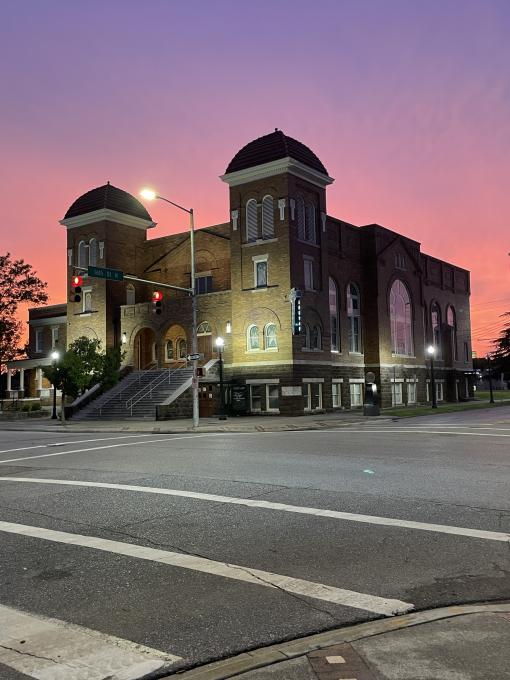The 1963 March on Washington for Jobs and Freedom brought together more than 200,000 people of different races, ethnicities, economic circumstances, and faith traditions for a day of unity and hope. Coming off the high of that incredible moment, many people may have thought the worst days of this country’s racist past were behind us.
Eighteen days later, that illusion was shattered when dynamite exploded at 16th Street Baptist Church in Birmingham, AL, killing four little girls and injuring nearly two dozen more. Denise McNair, Cynthia Wesley, Carole Robertson, and Addie Mae Collins were in the basement as the Youth Day service was set to begin when a bomb planted by Ku Klux Klan members changed the course of history.
The church had been a central meeting location in a town that was at the heart of the movement. In addition to being a prominent social and cultural center for the Black community of Birmingham, the 16th Street Baptist Church’s proximity to City Hall rendered it ideal for civil rights meetings and rallies. It was also a prime target for hate in a place where bombings had become so common that the city earned the nickname “Bombingham.”
The perpetrators hoped the pain and fear they would cause might snuff out the fervor for freedom. They believed white supremacy would prevail.
The event shook Birmingham and the entire country. Even those who had become complacent with the status quo of racism, economic injustice, segregation, gerrymandering, and violence were disgusted enough to demand change.
In the decades that followed, the country did change. In many ways, it also remained the same.
I unexpectedly visited the 16th Street Baptist Church last month. I was heading to a reception for the National Association of Black Journalists Convention at the Birmingham Civil Rights Institute. At that moment, I was thinking more about work than history. But the brick building against a beautiful post-storm sunset stopped me in my tracks.
Though I could not go inside, the energy of the exterior was enough to bring me to tears. From the original neon sign and National Landmark plaque to the copper statues of the girls playing in the park on the opposite corner, I was overwhelmed.
We are not living in an easy time. With the environment disintegrating around us, endless wars catalyzing humanitarian crises, rampant gun violence seeking to destroy our communities, and—this just in—12.4% of U.S. children living in poverty, despair almost seems warranted. I’m certain the same was true for the 16th Street Baptist Church community, Birmingham, Alabama, and the country back then.
Just as the 1963 March on Washington did not bring immediate change and the 2008 election of the first Black U.S. president did not result in a “post-racial America,” the “racial awakening” of 2020 did not end the indiscriminate killing of unarmed Black people. Racism, xenophobia, and social and economic injustices abound despite efforts to deny they ever existed.
What struck me about the statues across the street from the church and the Birmingham Civil Rights Institute were the intersections: the beauty and hope that coexisted alongside indescribable pain.
Indeed, this hope does not erase the horrors. Survivors continue to live with the trauma they experienced that fateful day. Yet, this duality propels our advocacy. We continue this work amid circumstances that are often immensely disheartening because we believe that at some point, our actions—a letter sent to a lawmaker, lobby visit, or op-ed—will help bend the arc of the moral universe ever-so-slightly towards justice.
As FCNL Executive Secretary Emeritus Joe Volk has said, “Things have been bad before, but we keep going.” The families of those four little girls and the other survivors deserve at least that.



